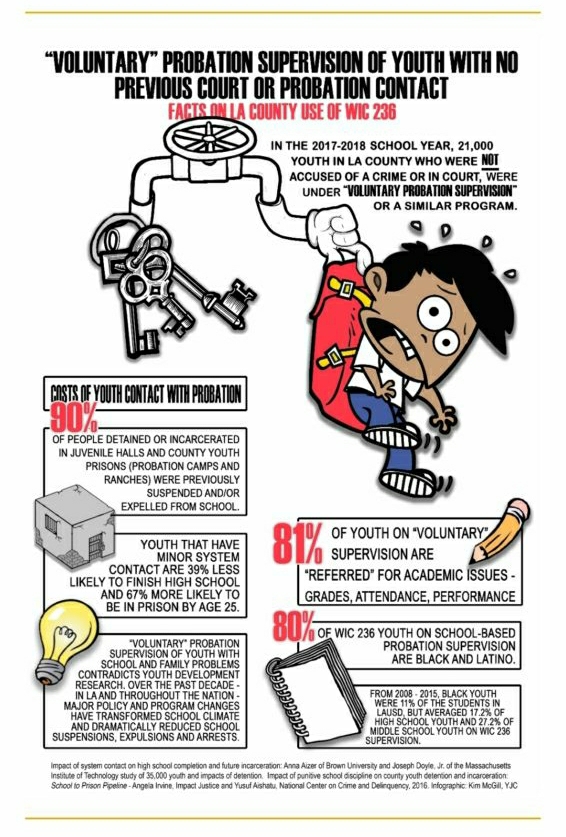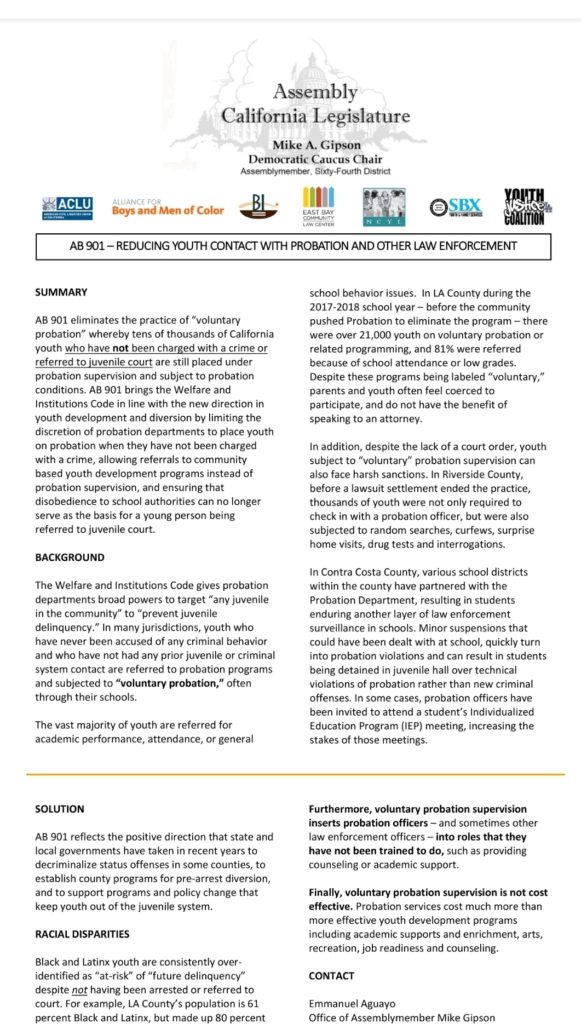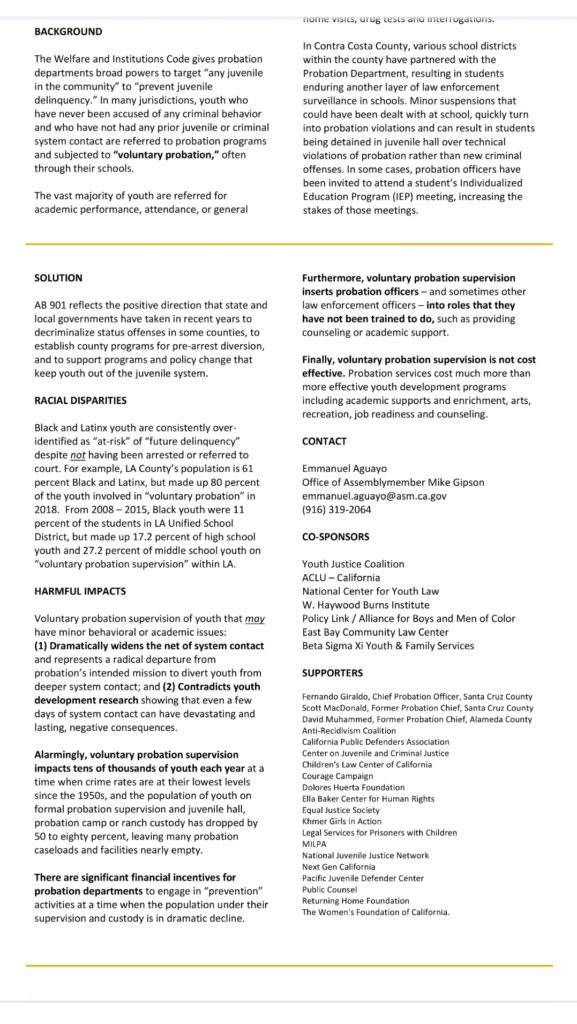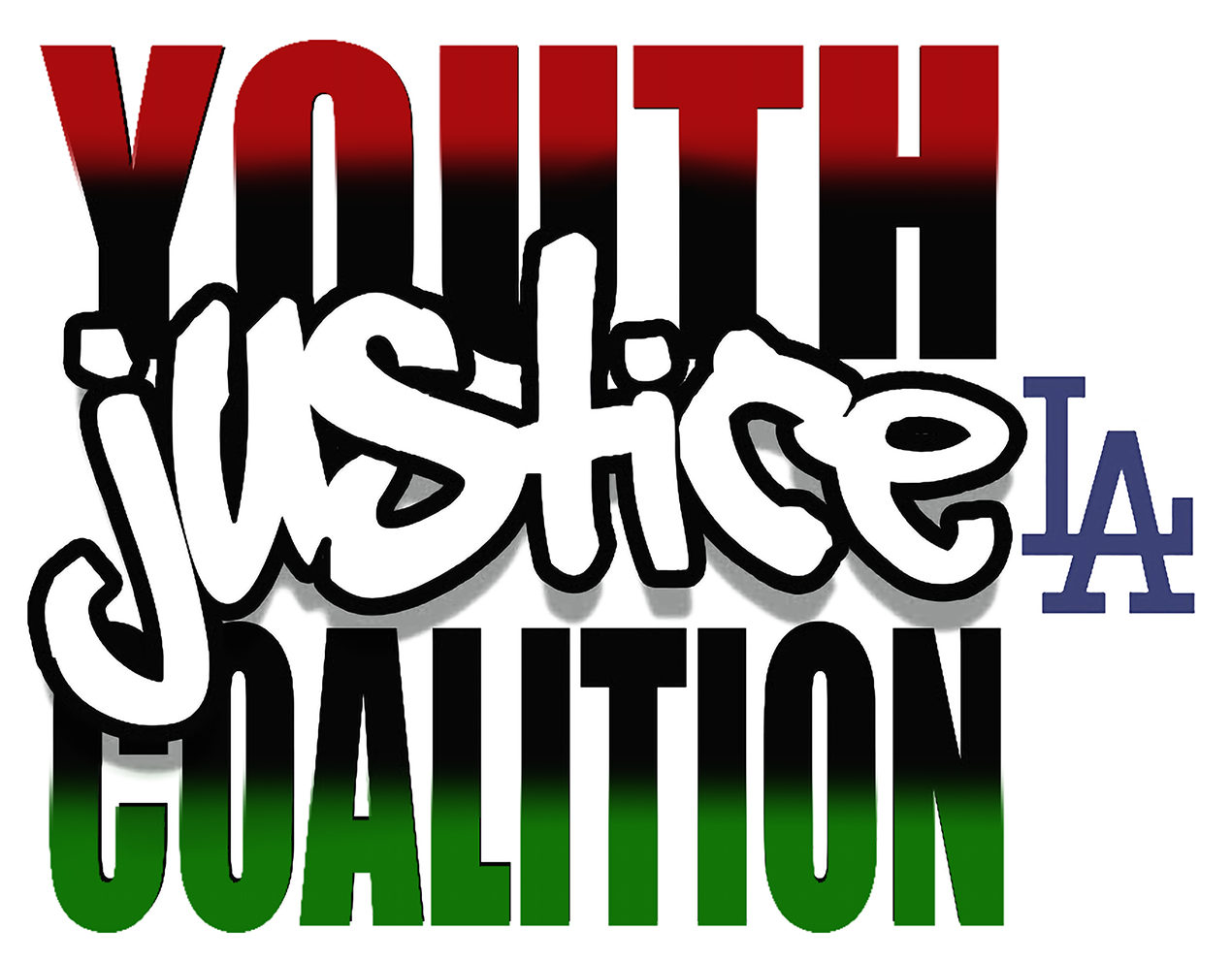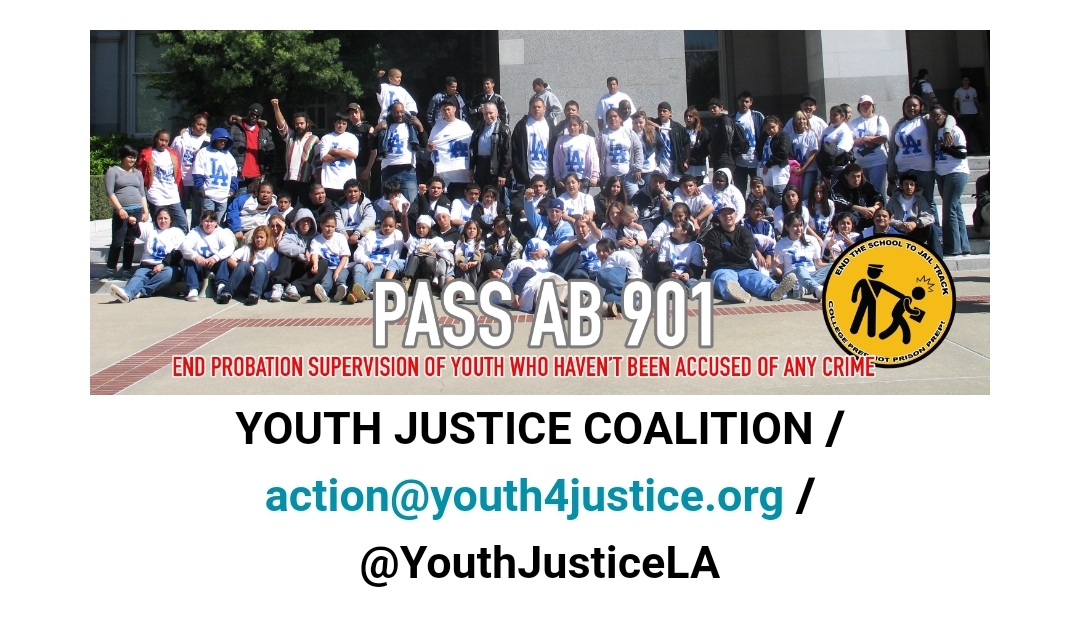Please send an organizational letter on your group’s letterhead by Friday, July 17th to support AB 901 (Gipson) that will end Probation supervision of youth across California who HAVE NOT BEEN ACCUSED OF A CRIME. In LA County, during the 2017-2018 school year, at least 21,000 youth were reporting to Probation – or to Probation-related programs usually run by other law enforcement agencies – without having been charged, arrested or referred by court. Eighty-one percent of the youth were referred to Probation because of academic issues such as low grades or school attendance. In Riverside, youth were subject to Probation conditions including searches and drug testing. In Contra Costa County, various school districts within the county have partnered with the Probation Department, resulting in students enduring another layer of law enforcement surveillance in schools. Minor suspensions that could have been dealt with at school quickly escalate into greater contact between youth and law enforcement, including Probation officers’ participation in students’ Individualized Education Program (IEP) meetings.
Directly below is a sample letter you can use along with additional facts on the bill. AB 901 will bring extraordinary change to tens of thousands of youth every year. If passed, AB 901 will contribute significantly to the movements to REMOVE ALL LAW ENFORCEMENT FROM SCHOOLS, to prevent youth criminalization and system contact, and to END THE SCHOOL-TO-JAIL TRACK!
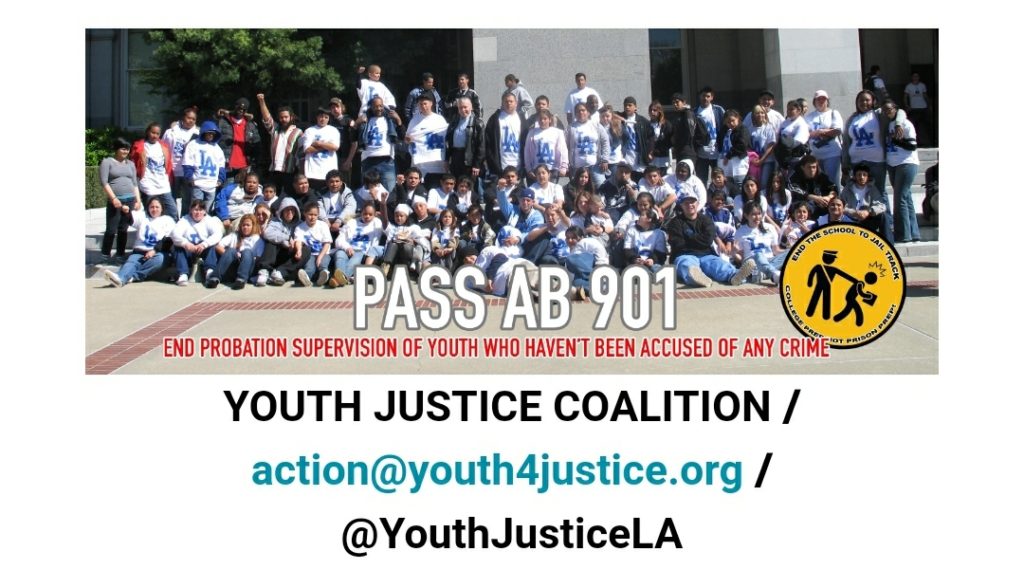
INSTRUCTIONS TO SUBMIT A SUPPORT LETTER FOR AB 901
COPY THIS LETTER ONTO YOUR LETTERHEAD AND REPLACE THE YELLOW HIGHLIGHTED SECTIONS
WITH YOUR INFORMATION.
- SUBMIT YOUR LETTER TO THE LEGISLATURE’S “ONLINE PORTAL” BY FRIDAY, JULY 10TH TO MAKE SURE IT’S INCLUDED IN THE ANALYSIS THAT GOES TO COMMITTEE MEMBERS. You can access the portal here:
- https://calegislation.lc.ca.gov/Advocates/
EMAIL YOUR LETTER TO Emmanuel.Aguayo@asm.ca.gov and to action@youth4justice.org
SO WE CAN MAKE SURE IT’S RECEIVED.
SAMPLE LETTER – COPY ONTO YOUR ORGANIZATION’S LETTERHEAD
DATE, 2020
The Honorable Mike Gipson
Member, California State Assembly
State Capitol
PO Box 942849
Sacramento, CA 942849-0064
RE: AB 901 (Gipson) — Support
Dear Assemblymember Gipson:
NAME OF YOUR ORGANIZATION is proud to support AB 901, which will amend the Welfare and Institutions Code (W.I.C.) to ensure that youth who have not been accused of breaking the law are not subject to harmful justice system interventions. More specifically, AB 901 will: (1) Protected youth from contact with the juvenile system, including “voluntary probation supervision;” (2) protect youth from informal probation supervision simply because law enforcement officials believe they will probably become justice system involved; (3) end justice system referrals for disobedience to school authorities; and (4)) Promote community based youth development programs and prioritize system diversion whenever possible.
BRIEFLY DESCRIBE THE WORK OF YOUR ORGANIZATION AND WHY YOU CARE ABOUT THIS ISSUE.
In recent years, California has made enormous progress in moving away from the punitive and ineffective policies once promoted as public safety. For young people especially, the state increasingly requires that when justice system intervention is deemed necessary, the behavior be addressed using the least restrictive means available, and by using youth development support services available through schools, health centers or community-based organizations. Still, every year, tens of thousands of youth in California are referred to probation, placed on a probation caseload. Youth of color consistently bear the brunt of justice system involvement. Black youth are nearly five times more likely than White youth to be referred to Probation and Latino youth are nearly two times as likely.
Numerous studies have shown that probation involvement – including excessive supervision and services for youth who have not been charged with any crime – does more harm than good. Despite this, under current California law, youth may be subject to probation conditions such as drug testing and curfews even though they have not been charged with any crime, arrested or referred to court.
For example, until recently, thousands of youth in Los Angeles County, were placed on “voluntary probation” pursuant to W.I.C. section 236. The program resembled court ordered probation but the youth were not arrested and had no court order to follow the order. A report about the practice found that such interventions “fall outside the mission, expertise and role of a probation officer. The practice runs counter to research, and risks widening the net of youth involved in the justice system. It also erodes opportunities to invest in education and community-based infrastructure to advance youth and community development in the long run, and deepens an historical disparity between resources for law enforcement and other county and community-based agencies whose lenses are human services, health and education.” As a result of organizing by youth, families and communities, Los Angeles County ended the practice in 2018.
After litigation, a similar practice recently ended in Riverside County, a lawsuit filed by the ACLU of Southern California showed that the Probation Department’s Youth Accountability Team (YAT) program treated thousands of youths — especially those of color — “like hardened criminals for minor adolescent misbehaviors.” Under terms of the settlement, the county can no longer enroll youth in the probation program — with its punitive practices such as surprise searches, unannounced home visitations, restrictions on whom participants could speak to, and interrogations into intimate details of participants’ lives — all for non-criminal behavior such as talking back to school officials, truancy, or academic problems.
In Contra Costa County, various school districts within the county have partnered with the Probation Department, resulting in students enduring another layer of law enforcement surveillance in schools. Minor suspensions that could have been dealt with at school, quickly turn into probation violations and can result in students being detained in juvenile hall over technical violations of probation rather than new criminal offenses. In some cases, probation officers have been invited to attend a student’s Individualized Education Program (IEP) meeting, increasing the stakes of those meetings.
AB 901 also protects youth from informal probation supervision for youth who have not been accused of a crime.
Under current law, youth may be placed on six months of informal probation under W.I.C. 654 if probation believes a young person “will probably soon” come under the courts’ jurisdiction. AB 901 limits informal probation under W.I.C. 654 to youth with allegations that would otherwise make them subject to juvenile court jurisdiction.
Finally, AB 901 promotes equity in the justice system. Disproportionate contact with law enforcement, higher rates of criminalization, and harsher sanctions for Black and Latino youth lead to alarming racial disparities across the state. Youth of color are disproportionately represented at every stage of the juvenile system. Ensuring that youth of color are not subject to justice system interventions without any due process protections is critical to promoting procedural fairness for all youth, facilitating positive legal socialization, and decreasing the likelihood that youth will become involved in the justice system.
AB 901 represents an historical effort to support a new vision for youth development and system diversion throughout California – one that recognizes youth by their strengths, promotes meaningful community and school-based interventions to support youth in their development and educational success, eliminates “voluntary probation supervision,” and reduces the high economic and emotional costs of youth arrest, court involvement, detention and incarceration that occur much more often once youth come into contact with probation and other law enforcement.
For all of these reasons, we are in strong support of AB 901.
Sincerely,
NAME
TITLE
